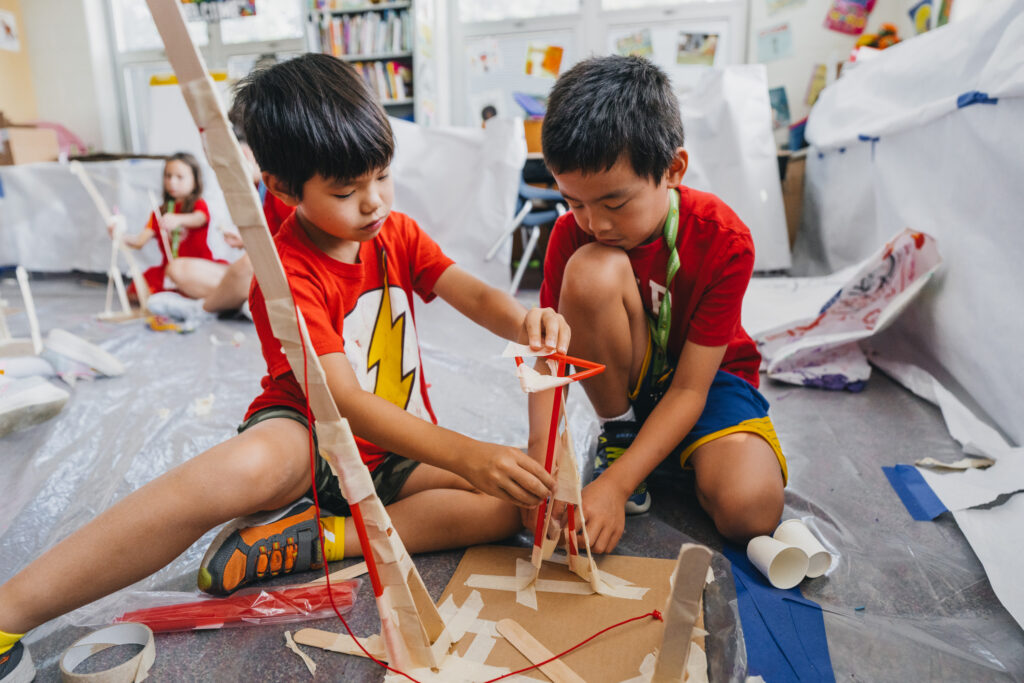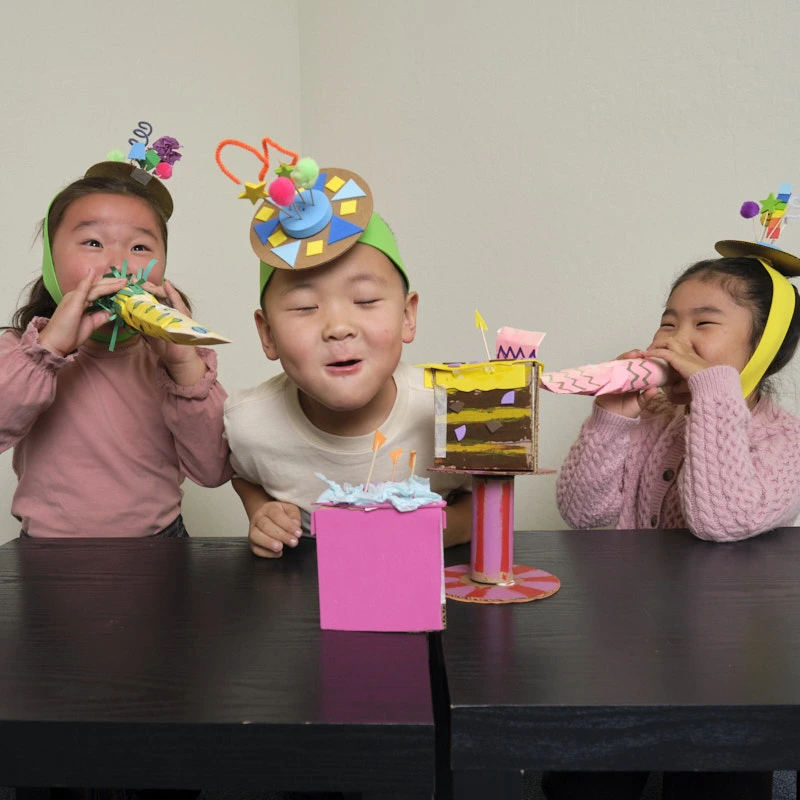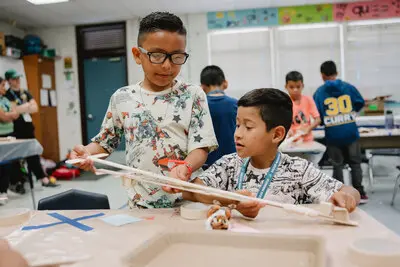Part 3 of a 3-Part Series on “Strategies from Camp Galileo For Building Creative Confidence and An Innovator’s Mindset”
By Matt Noble & Pamela Briskman
We parents are pretty tuned in to our kids’ particularities—their specific likes and dislikes, how they approach challenges, how they communicate (verbally or otherwise) what they need, what makes them feel better when they’re down or stressed.
But out in the world, no one knows them as well as we do. And as they grow up, they’ll navigate countless situations that involve working with people who don’t know how—or simply won’t try—to accommodate their preferences and quirks.
In the first two parts of this series, we explored strategies for helping kids build creative problem-solving skills, persistence and confidence in their own abilities. We focused on self-guided discovery vs. step-by-step instruction and offering guiding questions vs. quick fixes.
Here, we’re taking those essential skills out for a people-populated spin by focusing on another key piece of the Innovator’s Mindset: collaboration. Because great problem-solving skills only take you so far. To really make things happen, you have to work effectively with others.
Strategy 3: Collaborative Challenges vs. Independent Effort
At Camp Galileo, K–5th grade campers attend a daily rotation called Idea Lab, where they build collaboration skills by tackling open-ended design challenges together. These projects focus on rapid iteration and testing—no sweating small details or polishing to perfection. In fact, part of the fun of Idea Lab is the spectacular crushing, crashing and crumbling that follows pushing a physical design to its limit.
In one project, Nebulas (kindergarteners and 1st graders) work in pairs to design a pipe-cleaner safety net for construction-worker cups.
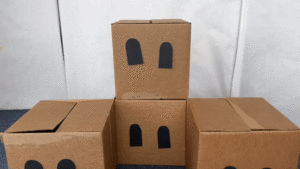
In this shared undertaking, kids encounter all the complexities of real-world collaboration—one partner wants to use the materials one way, while another has a different idea, or one partner is ready to test the prototype, while another wants to keep refining the design.
Idea Lab projects intentionally create challenging dynamics for kids to navigate (and for instructors to manage). But each of these conflicts presents an opportunity to build essential life skills. They let kids practice advocating for their ideas, while remaining open to others’ perspectives. They discover that conflict doesn’t mean failure—in fact, it often leads to breakthrough solutions they couldn’t have reached alone.
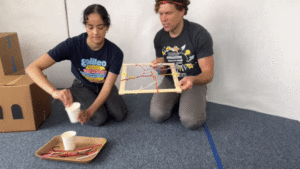
Projects like these help develop what we call collaborative resilience—the ability to work with others and to value each person’s unique insight in problem solving, even when it’s difficult. Encouraging kids to engage in this hard work also helps them build the competence that 5 Strategies to Free the Anxious Generation authors Jonathan Haidt and Dr. Becky Kennedy explain “is only developed as kids watch themselves navigate challenges, struggle, try things on their own, and eventually figure things out.”
Bringing it Home
Fostering collaborative resilience at home might involve managing more challenging dynamics when it could be easier to let everyone do their own thing.
Try this: Instead of making individual meals that let everyone eat exactly what they want, kick off a conversation with the goal of creating a compromise dinner that works for the whole family. Set the expectation that individuals aren’t only responsible for themselves—they also help others succeed.
Encourage your kids to work with others to stage a play, create a mural, bake a cake or do a service project. Remind them to ask their friends for ideas and be willing to compromise, but let them manage challenges that arise on their own.
And when it comes time for the inevitable group project at school, encourage your child to find a way to truly collaborate with classmates—distributing the cognitive load of a complex problem, rather than dividing and conquering or doing most of the work themselves to avoid conflict. When kids experience how someone else’s insight can unstick their thinking or how a classmate can improve upon their half-baked idea, they being to trust the power (and value the products) of genuine collaborative effort.
Building Innovators Who Can Thrive in the Real World
Real-world innovation is collaborative, messy and full of failed attempts. It requires the ability to adapt when initial approaches don’t work, persist through setbacks, and work effectively with people who bring different perspectives and skills. It requires individuals who have the hard-earned competence that, according to Haidt and Kennedy, also counteracts anxiety.
In a world where artificial intelligence is disrupting the professional landscape, collaborative teams have the potential to thrive at the very juncture where AI models fail. That is, while AI excels at tasks involving synthesis and automation, it struggles to move off of the creative starting blocks to solve complex novel problems. This is where innovative, high-functioning interdisciplinary teams are unmatched.
To ensure campers bring these valuable, intangible life skills home (along with the cool projects they make in Innovator’s Studio), every Galileo project is underpinned by a thoughtful curriculum designed to develop an innovator’s mindset. And every Galileo instructor employs the same instinct-defying techniques that mirror effective parenting: They create space for self-guided discovery, ask guiding questions instead of providing quick fixes and facilitate collaborative problem solving.
The result? Kids who don’t just tolerate uncertainty, but flourish in it. Young people who can walk into any room or situation with the quiet confidence that comes from knowing they can figure it out.
At camp, at home or out in the wide world, Galileo kids are ready for whatever challenges their futures may hold.
